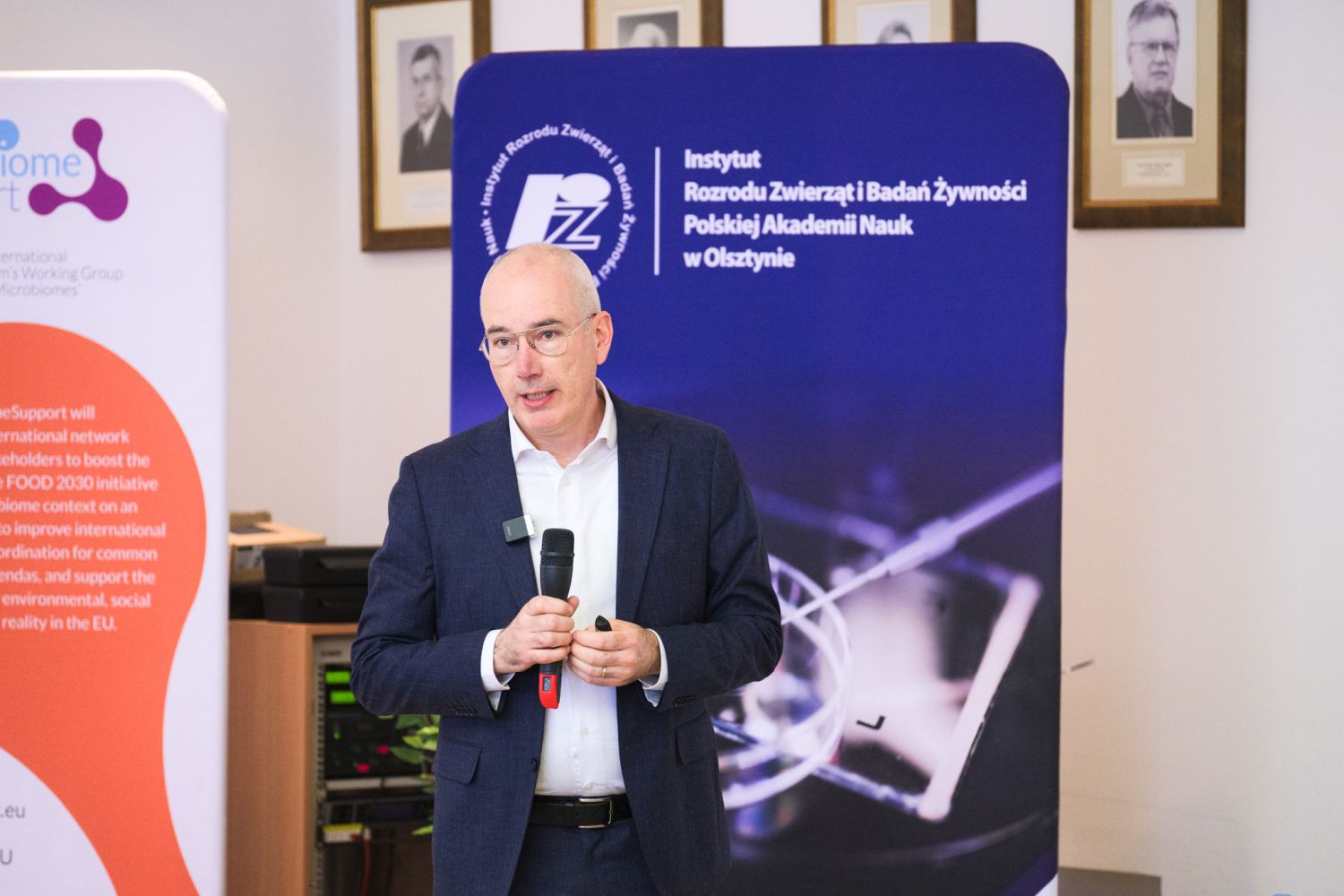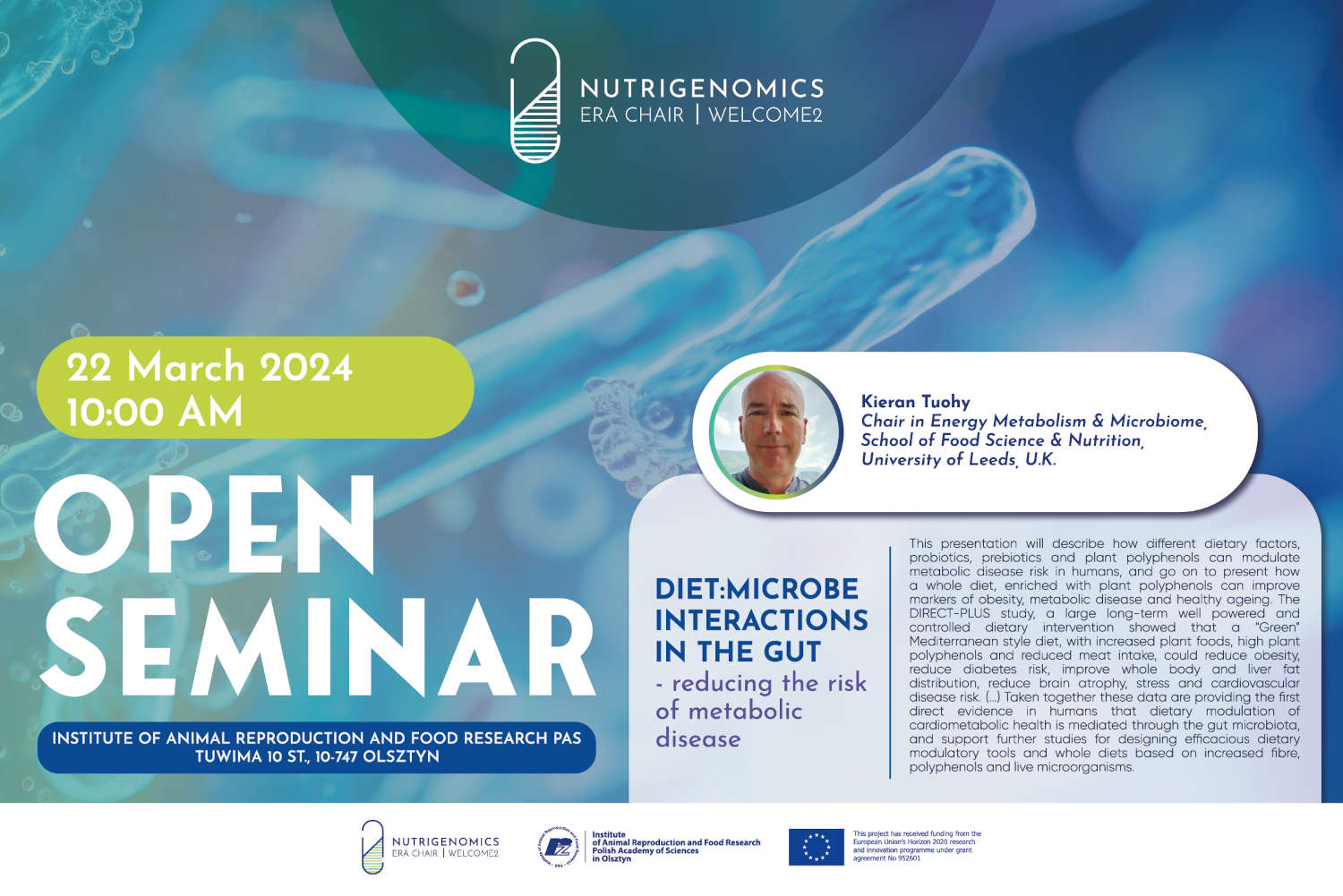A new idea for research demonstrating the effectiveness of vitamin D supplementation has been developed by researchers from the ERA Chair WELCOME2 nutrigenomics team. They propose to divide patients into three groups according to the degree of response of the body to vitamin D, based on measuring the expression (response) of specific genes to the vitamin.
– Measuring vitamin D levels in the body alone is not an effective way to determine whether we have enough vitamin D. It is crucial to take into account the individual level of the body’s response to this vitamin by measuring the expression of specific genes. Only such an approach will give a reliable result as to whether vitamin D supplementation has the intended effect – explains Dr Emilia Gospodarska of the Nutrigenomics team of the IAR&FR PAS in Olsztyn.
Publication on this topic has just been published in the journal “Nutrients”.
Changing the approach
Emilia Gospodarska explains that current blood tests to determine the effectiveness of vitamin D supplementation are not well designed.
– These tests are designed along the lines of therapeutic drug tests, not a nutritional compound such as vitamin D. Measuring the difference between a level of zero, that is, without administration of the drug, and then after a time when the drug has been taken, does not work for vitamin D. One reason for this is that, after all, everyone already has a certain level of this vitamin; it is never zero. Furthermore, people differ in their response to vitamin D. Our doubts have been confirmed by recent long-term studies (RCTs – randomised controlled trials) on a large scale (up to 25,000 participants) to evaluate the effectiveness of vitamin D supplementation in preventing the development of a number of diseases, including type 2 diabetes, cardiovascular disease or cancer, which did not provide any statistically significant results – the researcher emphasises.
A team of nutrigenomics experts from Olsztyn (nutrigenomics is the science that studies the effect of nutrients on the expression of genes, among others, responsible for health) has therefore proposed a paradigm shift.
The core of their idea is to move away from measuring vitamin D levels alone to studying the body’s response to the vitamin – based on the expression levels of specific genes, which are markers, or determinants, of this action.
Currently, scientists are looking for the best ones to study from a wide range of genes – potential markers. Bioinformaticians are involved in the work.
Crucial to this new approach described is the division of the population into three groups – in terms of their level of response to vitamin D: high responders, medium responders and low responders.
– This classification was proposed by our team leader Professor Carsten Carlberg, based on his research on the Finnish and Saudi Arabian populations. Based on this classification, we know, for example, that people with a high vitamin D response (i.e. when the body is able to maximise the effects of vitamin D) will need less vitamin D than those with low levels. Let me give an example to illustrate: the standard established vitamin D dose for an adult is 2000 units per day. However, it turns out that people in the low-response group need more of it. How much exactly – this will be determined on the basis of the studies we are developing – points out Emilia Gospodarska.
The research conducted by scientists from Olsztyn is basic level research. However, Emilia Gospodarska is convinced that the solution has a chance of commercialisation.
– Our proposal will make it possible not only to demonstrate the actual effectiveness of vitamin D supplementation, but also to personalise the therapy by determining the exact dose needed for a given patient – concludes the scientist.
Vitamin D – essential for our health
Vitamin D affects the functioning of the entire body. Its most well-known action is to maintain adequate calcium levels in the body to maintain proper bone structure. Vitamin D is also important for ‘training’ our immune system so that it works effectively in the case of microbial infections, but also does not overreact in the case of possible autoimmune reactions.
Long-term vitamin D deficiency can lead to bone diseases – rickets in children and osteomalacia in adults. It also causes a malfunction of the immune system, leading to, among other things, increased susceptibility to infectious diseases or autoimmune diseases.






